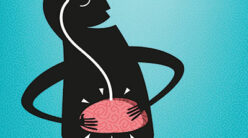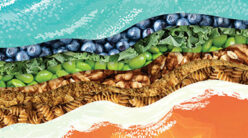 “I didn’t have my first drink until I was 29,” the dentist said. “I had just received my acceptance letter from dental school and I thought I could finally relax and have an occasional drink.”
“I didn’t have my first drink until I was 29,” the dentist said. “I had just received my acceptance letter from dental school and I thought I could finally relax and have an occasional drink.”
“Same age as me,” the trauma surgeon and helicopter pilot stated.” The first time I drank was right before a mission. Unfortunately, I drank a pint of vodka, and I don’t remember the mission I flew until the moment I landed. I lost several soldiers on that mission, and I still feel guilty about it 30 years later.”
“I remember from age six looking forward to communion wine at my church because of the good feeling it gave me,” the 30 year old woman remarked as I obtained her history upon her admission to the alcohol treatment unit. “I drank purposely to get drunk from age 10,” the 35 year old nurse told me after entering treatment so she would not lose her nursing license.
Addictions are at the same time unpredictable and predictable. There are risk factors that increase the chance of becoming addicted. Even being brought up in the right home, with the right parents, having the right education, and going to the right church will not necessarily protect you from becoming addicted to alcohol or any other drug.
What are the factors that increase your chances? Experts use a long made up word to describe the factors. Bio-psycho-social is the term. What it means is that there is not one factor but several.
“Bio” stands for biological, or the genetic factors that play a role. Rats can be bred over multiple generations to choose alcohol over water when given a free choice. If one identical twin with an alcoholic parent develops alcoholism, 60% of their identical twins will also develop alcoholism even if brought up by nonalcoholic adoptive parents.
Another biological factor influencing your disposition to addictions is the fact that brain chemicals are in different proportions in different people. This causes alcohol to affect some people differently than others. For example some people have more anxiety which alcohol seemingly normalizes. Alcohol’s calming effect in these people gives them more of an incentive to do it again. But continued use of alcohol eventually leads to a tolerance to it developing. Eventually this type of person requires more alcohol to achieve the same effect. This leads to an eventual downward spiral into addictive behavior and becoming trapped.
Sons of alcoholic fathers actually are less affected by alcohol when compared to sons of nonalcoholic fathers. Give both groups the same amount of alcohol and the ones with alcoholic fathers feel less of a buzz and don’t have as much imbalance.
It’s not one single gene, but many, that contribute to addictive tendencies. But even if you have all the genes that contribute to susceptibility to becoming alcoholic, you don’t necessarily become alcoholic. The phrase “Biology is not destiny” is important to remember. Knowing you have tendencies toward alcoholism because of your family history, you can choose to not even drink socially, thus avoiding the whole problem. You will still need to be aware of addictive tendencies though in other areas such as gambling, sex, work, eating, and shopping.
“Psycho” refers to the psychological events that make it easier to become dependent to chemicals.
“I have always felt different from others, and when I had my first drink I felt as though that invisible wall between others and myself had magically disappeared. I was ashamed of the light colored patches on my skin and after drinking it didn’t seem to matter anymore.” The nurse mentioned earlier who drank from age 10 actually had endured sexual abuse, and to her it made perfect sense to start drinking to numb the fear, anguish, and pain.
Many soldiers from Vietnam or any other war use alcohol or other drugs to numb the memories of what they experienced. “I drank in order to get to sleep. I couldn’t sleep because I was terrified of what God would do to me in order to punish me for what I did during the war” one vet told me. Just one look at his face convinced me of the reality he felt. It took a year before he could smile, knowing that God could forgive him but even longer before he could forgive himself. Not until he was able to forgive others did he finally experience forgiveness himself.
Some people are easily bored, always have to try something new, stir up some trouble or check out trouble brewing. Punishments don’t faze them and rewards don’t have much influence. This is the type of person that is most apt to experiment with alcohol or drugs and also to become addicted as a result.
“Social” refers to the social factors in your environment. You are not immune to influences around you. For example researchers have proven that as the price for cigarettes increases fewer teenagers will begin smoking. The drugs that cause the most problems are the drugs that are the most available. Which drugs are these? The legal drugs alcohol and tobacco together cause more than 25% of all deaths each year in the U.S. Less than 20,000 deaths a year are caused by all other street drugs combined. The “drug war” is focused on the drugs that cause the least deaths!
Obviously the fact that some drugs are illegal will not prevent everyone from using them, but it does prevent some. More people use drugs that are legal, and as a result, if they have genetic tendencies, will then become addicted. Unfortunately the genetic makeup you inherit from your parents or even grandparents does not always predict your future. If teens can avoid smoking before they reach age 18, the chance of their ever using drugs or becoming addicted to drugs is very small. And because you use alcohol or smoke cigarettes or marijuana, it does not always mean you will go on to using cocaine or heroin. But those who end up using amphetamines, cocaine, and heroin usually began with the more available drugs such as alcohol and cigarettes!
Attitudes towards social drinking also influence how many become addicted. What some do under the influence may be humorous, but it is also tragic. There aren’t many jokes about those with diabetes or cancer but we do have jokes about alcoholics. This reveals how permissive we are as a society to the problem of addiction. Instead of laughing at the results of excessive drinking we should recognize it for what it is and help the person get help from those who understand the condition.
No one becomes alcoholic intentionally. Everyone rationalizes the process in the early stages. “I’m just having just a little.”
“It’s just enough to feel good.”
“I’m just having some fun!”
“Oh, just this once, just to be friendly.”
Yet 17 percent of the population will end up having regrettable and often uncontrollable problems as a result.
Why it is so easy for humans to become addicted? The area of the brain that is affected controls what is called the reward system. Often special cells in the brain are activated you feel pleasure. Addictive drugs activate these brain cells and pathways. But normal, healthy behaviors can activate these same areas, too. It’s as if God is trying to make it easier for you to do the right thing. For example if you get a good grade on the test after studying hard you feel a surge of pleasure. This helps you remember what it took to feel good and therefore you’ll study hard for the next test. If you act unselfishly toward someone you love and they respond in a way that makes you feel real good, you say to yourself “I’m going to act unselfishly again in the future since I like feeling this way.” Catch a touchdown pass or get a compliment about how you look, and you’re going to repeat that behavior, since it feels good. Unfortunately you take a shortcut and use a drug to obtain this same feeling, then you will more likely remember the shortcut and repeat the act in order to feel good again. This causes a surge of feeling to become the goal rather than the process, and eventually you will become addicted to the shortcut.
The dentist who did not have the first drink until accepted into dental school became addicted to pain pills and stole medications from his patients before he finally entered treatment. The nurse who drank from age 10 eventually lost her ability to function as a nurse even with treatment.
Early signs of addiction are not hard to understand. It is easier for the onlooker to detect, though, than for the person using the chemicals. Initially a feeling of embarrassment, followed by guilt are felt. This leads to a tendency to minimize or avoid the topic, to blame something or someone else. Because admitting the truth would cause an addicted person to feel terrible, they often describe their lives as overwhelmed by stress, fatigue, a lousy job, a nagging spouse, bad luck, or judgmental friends. If avoiding the topic doesn’t work and others still bring up their drinking, then the addicted person will use anger to frighten off their friend. Then the alcoholic and the family become isolated dropping out of the social scene, even going as far as avoiding family gatherings or church activities.
Outrageous techniques are utilized to hide the drinking or using. One of my patients would pour alcohol into a drinking hose. Telling his wife he was going to work in the yard, he would then make multiple trips to the hose to get “a drink of water.” Another patient who was an elderly grandmother would only drink her alcohol from a thermos so her family would think it was just coffee.
Eventually financial problems begin to develop, with more money being spent on the chemicals and not enough on life’s ?????. Additional money is spent on the resulting problems such as accidents and drunk driving violations. A spouse now has to assume more and more responsibilities, eventually causing fatigue, depression, insomnia, hypertension, headaches or backaches. Children do not bring friends home anymore to avoid the embarrassing, unpredictable encounters. Eventually problems develop on the job and in the physical health of the substance user. Not all doctors or counselors are comfortable confronting the problem and so the problem persists until it can no longer be ignored. Often this results in serious medical problems, divorce or death.
Family members become trapped to the same degree that the chemical traps their loved ones. “My son is using heroin and he won’t stop.” said one woman. I turned to the son but he wasn’t sure why mom was so upset. I continued talking to his mother.
“Yes, he lives at home with me still,” she said. “He won’t take care of himself so I end up doing the cooking for him and cleaning his clothes.
Sometimes I find myself loaning him money knowing he will use it to buy drugs. I’ve even found myself driving him into Los Angeles in order for him to buy more heroin. I know I shouldn’t, and I promise myself it will only be this once, but it isn’t. I’m hoping that he will see how much I love him making these sacrifices and by seeing this love it will motivate him to change.” Unfortunately it wasn’t working and she needed help to practice tough love not permissive love. She needed new ways of thinking, just like the patient did.
It used to be believed that an addict had to hit bottom before being willing to receive help. Hitting bottom meant losing self-respect, friends, family, home, money, job, and health. We now know that it needn’t become this severe if the right techniques are applied early enough in the course of the addiction’s progression. It is unusual for the patient to wake up one day and say, “Today I will get help.” Generally it takes some external pressure either from the family, from concerned colleagues at work, from the doctor, or from the legal system before one chooses to make changes. A diabetic or someone with hypertension is not able to think their way to health. In the same way, a person with alcohol or drug related problems would need to follow directions and a plan of recovery in order to achieve success. It is usually an ongoing process that requires vigilance, new ways of thinking, spiritual renewal, and guidance from experienced helpers.
Even if a person is not seemingly willing to receive help there are caring and supportive ways to encourage their seeking help. For professionals such as doctors, dentists, nurses, and pharmacists there are professional programs of help referred to as “Diversion.”
Many insurance companies will reimburse the cost of treating the withdrawal from various chemicals. Just getting through withdrawal though is not enough, and more treatment will be needed to educate the patient on how to not relapse. A person does not have to be an inpatient; there are many outpatient programs that are effective. Some people will need to stay in a recovery home because of being homeless or jobless. Many counties have programs for those without medical insurance. Self help groups exist such as Alcoholics Anonymous and for family members Al-Anon, Narcotics Anonymous and Nar-Anon, Cocaine Anonymous, Sex and Love Addicts Anonymous, Gamblers Anonymous, and others.
The bad news is that humans will always be prone to addiction. This problem will never go away. The good news is that recovery is possible. I see miracles occur every week in the treatment program I work with. I’ve seen lives changed from hopelessness to hopefulness, from degradation to recreation, and from a slave to chemicals to a child of God. If you are concerned about a loved one then do not wait. You be the one to begin the process of healing.






